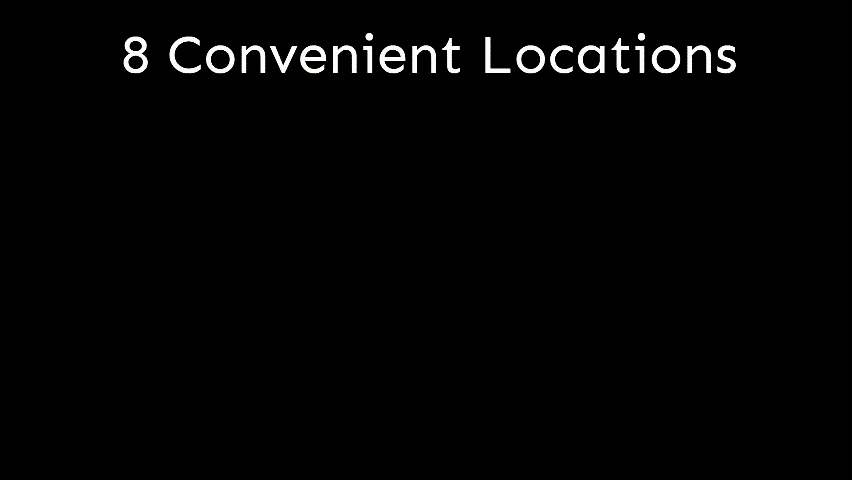When it comes to MIG welding, your choice of shielding gas directly affects weld quality, spatter levels, penetration, arc stability, and ultimately—project cost. In Central Texas, where industries rely on reliable welding performance in manufacturing, production, repair, and energy sectors, selecting the right gas is a critical decision. At Dupuy Oxygen, we supply the full range of shielding gases—including pure argon, CO₂, and custom mixes—and guide welders and shop owners in choosing the best solution based on material, budget, and application.
Argon: The Inert Gas of Choice for Non-Ferrous Welding
Argon is a fully inert gas, meaning it does not react with molten metal. This makes it ideal for welding non-ferrous metals such as aluminum, magnesium, titanium, and copper alloys. For MIG welding aluminum, 100% argon is the industry standard, offering a stable arc, low spatter, and smooth bead appearance. Steel applications are limited with pure argon, as the gas does not promote adequate penetration. For stainless steel, argon can be used but is typically blended with CO₂ or O₂ for improved results. Argon’s low ionization potential also contributes to a smooth, controlled arc, making it suitable for precision welding, thinner materials, and high-detail work.
CO₂: High Penetration at a Low Cost
100% CO₂ is the most cost-effective shielding gas in MIG welding—and the only active gas commonly used alone. It offers deep penetration, making it ideal for structural steel, heavy plate, farm equipment repair, and applications requiring strong root fusion. However, the trade-off is higher spatter, a harsher arc, and more post-weld cleanup. Many Central Texas fabrication and agricultural shops choose CO₂ for its price point and penetration on mild steel, especially where appearance is less critical than durability. For semi-automatic applications, CO₂ requires additional cleanup time and can increase wear on consumables due to arc instability.
Argon/CO₂ Blends: The MIG Welding Workhorse
The most common MIG shielding gas is a blend of argon and CO₂—typically in ratios such as 75/25 (C25), 85/15, or 90/10. These blends combine the arc stability and low spatter of argon with the penetration benefits of CO₂. A 75/25 blend (75% argon, 25% CO₂) is widely used for carbon steel welding and provides smooth metal transfer, good bead appearance, and reduced cleanup. Higher-argon blends (90/10 or 95/5) are suited for robotic welding, spray transfer, and high-production environments, minimizing downtime and rework. Shops working with both thin and medium-gauge steel often standardize on C25 for versatility and predictable performance.
Choosing Based on Transfer Mode
Your shielding gas must match your transfer mode.
-
Short Circuit Transfer: Works with 100% CO₂ or 75/25 blends. Good for thin materials, out-of-position welding, and lower heat input.
-
Globular Transfer: Possible with pure CO₂, but not preferred due to high spatter and poor aesthetic.
-
Spray Transfer: Requires at least 80% argon, giving high deposition rates, low spatter, and deep penetration on thicker steel in flat or horizontal positions.
-
Pulsed MIG: Ideal for aluminum and stainless steel using high-argon blends. Offers low heat input without sacrificing weld quality.
Knowing your transfer mode helps narrow down the right gas long before you buy.
Cost vs. Performance in Central Texas Shops
Shielding gas cost varies significantly—pure CO₂ is the most affordable, while argon-based blends cost more per cubic foot. However, the cheapest gas is not always the most cost-efficient. High-spatter CO₂ means more time spent grinding, cleaning, and reworking. In contrast, 75/25 or 85/15 blends reduce cleanup, improve bead quality, and shorten production time. For high-volume welding operations in Waco, Temple, Killeen, and surrounding areas, the labor savings often outweigh the slightly higher gas cost—especially when producing visible welds or working with automated equipment.
Material Matters
Your material type should always guide gas selection:
-
Mild Steel: 100% CO₂ or 75/25 argon mix
-
Stainless Steel: Argon/CO₂/O₂ blend (e.g., 90/7.5/2.5)
-
Aluminum: 100% argon (or Ar/He mix for thicker sections)
-
Galvanized Steel: 75/25 with anti-spatter techniques
Dupuy Oxygen can provide custom blends if your application has unique wetting, penetration, or bead profile requirements.
Cylinder, Microbulk, or Bulk Supply Options
Whether you're running a single-shop setup or a multi-bay production line, we offer various supply configurations:
-
Individual Cylinders: Ideal for small welding operations or mobile work
-
Microbulk Tanks: Cost-effective for medium-volume shops using 750–3,000 cubic feet/month
-
Bulk Tanks: Designed for large manufacturers or ongoing high-volume MIG welding
Central Texas welders can choose the right size, pressure, and delivery frequency for their business—without overpaying for unused capacity.
Weld Troubleshooting: Shielding Gas Issues
Common signs you’re using the wrong gas:
-
Excessive spatter
-
Porosity or wormholes in the bead
-
Poor penetration or cold lap
-
Unstable or sputtering arc
-
Burn-through on thin sheet metal
Gas selection isn’t the only variable, but it’s one of the most common root causes of weld inconsistency. Dupuy Oxygen’s team can help diagnose issues and recommend the right gas adjustment.
Why Central Texas Welders Trust Dupuy Oxygen
Dupuy Oxygen has supplied welding gases, cylinders, and custom mixes across Central Texas for decades. We work directly with fabrication shops, metalworking businesses, manufacturers, trade schools, and pipeline contractors to deliver:
-
Top-grade gas purity
-
Fast cylinder swapouts and delivery routes
-
Competitive pricing for bulk and microbulk
-
Technical support from experienced welding gas specialists
We’re not just a supplier—we’re a long-term industrial partner.
Ready to Select the Best Gas for Your MIG Setup?
Whether you're welding steel, aluminum, or stainless—and whether you run one torch or 50—Dupuy Oxygen has the right gas, supply format, and expertise for the job. Our team can help you compare cost, weld quality, and delivery options so you get the best long-term value.
Contact Dupuy Oxygen today for MIG gas pricing, shop evaluations, or on-site delivery anywhere in Central Texas.


